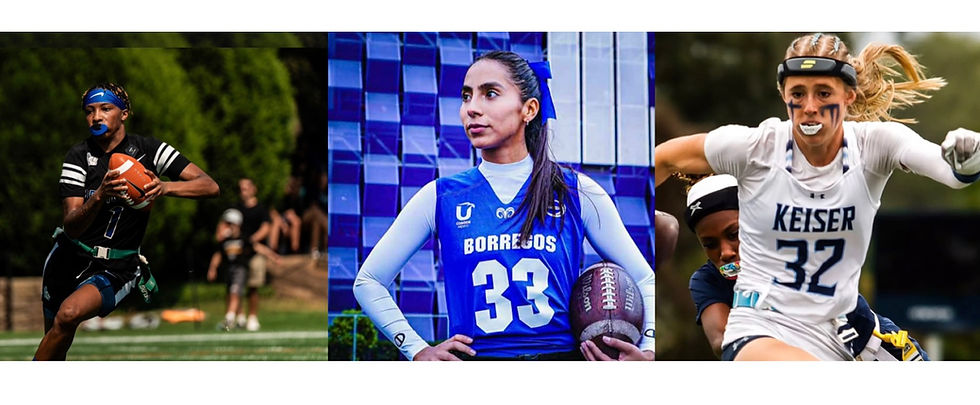Seton Hall Responds to Lawsuit Filed by Former Star Myles Powell
- Jason Morrin
- Aug 10, 2021
- 3 min read
Updated: Aug 29, 2022
In a lawsuit filed on July 14, Myles Powell, a former Seton Hall star basketball player, alleged that the university, its head basketball coach, and a trainer downplayed a serious knee injury that, he claims, ultimately prevented him from getting drafted to the NBA. While he was initially told the injury was a bone bruise, it was eventually revealed to be a torn meniscus. Powell believes the defendants knew all along.


Powell alleged four counts in a civil lawsuit:
(1) Negligence against Tony Testa (trainer/medical expert)
(2) Negligence against Head Coach Kevin Willard and Vicarious Liability against Seton Hall
(3) Breach of Fiduciary Duty
(4) Breach of Contract

The defendants filed a brief in support of their motion to dismiss the lawsuit on August 6, 2021 in United States District Court in New Jersey. In the brief, they claim that all counts must fail as a matter of law. Specifically, the defendants argue that counts 1 and 2 (Negligence) must fail because of New Jersey’s Charitable Immunity Act. Said Act, according to the defendants, “shields educational institutions like Seton Hall and its employees and agents, from the type of liability alleged in the Complaint."

Further, the defendants argue that count 3 (Breach of Fiduciary Duty) must be dismissed because of an additional safeguard ingrained in law. Per the brief, the defendants write, “[t]his count is patently baseless as New Jersey, as a matter of law, does not recognize a fiduciary duty or any fiduciary duties owed between a university and student, or a coach to a student athlete.”
The defendants give examples of the types of relationships that may give rise to fiduciary duties in New Jersey: “trustee and beneficiary, guardian and ward, agent and principal, attorney and client, corporate director and shareholder, and the members of a partnership.” None of which, they claim, includes university and student, or coach and athlete.

Finally, Seton Hall and its allegedly culpable agents argue that Powell’s final count, breach of contract, must fail. The contract in question is the National Letter of Intent that Powell signed, originally binding him to play basketball at the university. The defendants reason, “Plaintiff has failed to state a claim for breach of contract because Plaintiff has not identified any provision of the contract that was allegedly breached, and an examination of the contract reveals that it does not even remotely contain the contractual duties that Plaintiff alleges and claims existed and were breached.” “Plaintiff yet again attempts to couch legal conclusions as factual allegations.”
For the foregoing reasons, Seton Hall, Kevin Willard, and Tony Testa request that their motion to dismiss the lawsuit be granted. The defendants spent little time attempting to refute Powell’s factual allegations. At this time, the defendants feel that their position should succeed as a matter of law; thus, responding to factual allegations is not yet necessary. The motion is scheduled to be heard September 7. If the judge denies the motion and gives Powell the right to conduct discovery, the defendants will begin to refute the facts as well. At this stage, it was not yet necessary. Last season, Powell played in the NBA G League for the Westchester Knicks.
Jason Morrin is a third-year law student at Hofstra Law School in New York. He is the President of Hofstra’s Sports and Entertainment Law Society. Additionally, he is a Law Clerk at Geragos & Geragos. He can be found on Twitter @Jmorr1.







EPS Machine EPS Cutting…
EPS Machine Eps Raw…
EPS Machine EPS Recycling…
EPS Machine EPS Mould;
EPS Machine EPS Block…
EPP Machine EPP Shape…
EPTU Machine ETPU Moulding…
EPS Machine Aging Silo…
EPTU Machine ETPU Moulding…
EPS Machine EPS and…
EPS Machine EPS and…
AEON MINING AEON MINING
AEON MINING AEON MINING
KSD Miner KSD Miner
KSD Miner KSD Miner
BCH Miner BCH Miner
BCH Miner BCH Miner
EPS Machine EPS Cutting…
EPS Machine Eps Raw…
EPS Machine EPS Recycling…
EPS Machine EPS Mould;
EPS Machine EPS Block…
EPP Machine EPP Shape…
EPTU Machine ETPU Moulding…
EPS Machine Aging Silo…
EPTU Machine ETPU Moulding…
EPS Machine EPS and…
EPS Machine EPS and…
AEON MINING AEON MINING
AEON MINING AEON MINING
KSD Miner KSD Miner
KSD Miner KSD Miner
BCH Miner BCH Miner
BCH Miner BCH Miner
EPS Machine EPS Cutting…
EPS Machine Eps Raw…
EPS Machine EPS Recycling…
EPS Machine EPS Mould;
EPS Machine EPS Block…
EPP Machine EPP Shape…
EPTU Machine ETPU Moulding…
EPS Machine Aging Silo…
EPTU Machine ETPU Moulding…
EPS Machine EPS and…
EPS Machine EPS and…
AEON MINING AEON MINING
AEON MINING AEON MINING
KSD Miner KSD Miner
KSD Miner KSD Miner
BCH Miner BCH Miner
BCH Miner BCH Miner